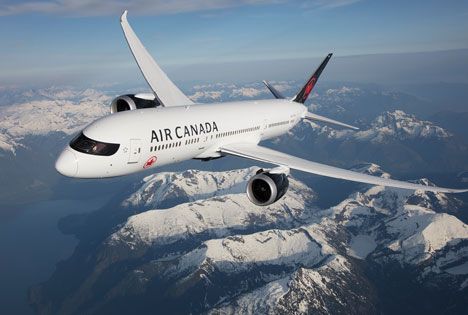Air Canada has started work on a $16-million project to expand its cold chain handling at Toronto Pearson International Airport.
Once completed, the upgraded facility will feature over 30,000sq ft of temperature-controlled areas and an expanded cooler to fully meet the requirements of cold chain shipments such as pharmaceuticals, fresh food and other perishables.
The extended cooler will accommodate more unit load devices (ULD) and loose shipments with +2°C to +8°C and +15°C to +25°C temperature requirements, provide additional racking, and an upgraded dedicated area for active temperature control units.
The carrier says they are the first step in a multi-year investment plan for the facility and are part of several planned infrastructure investment projects for Air Canada Cargo.
The project also includes the installation of equipment including temperature controllers that will constantly monitor the conditions inside the facility and only regulate the temperature as needed, so as to reducd energy consumption. Rapid roll-up doors will be installed to minimize energy loss when the cooler is accessed and LED lights will be installed throughout the facility.
Air Canada is CEIV Pharma certified by IATA, meeting the highest standards of safety, security, compliance and the enhancements were guided, in part, by its specifications.
Vice president, cargo, Jason Berry, said: “Our new temperature-controlled facility, which will be the only one of its kind for a Canadian airline, represents a significant addition to Air Canada’s on-site capabilities at Toronto Pearson and to Canadian cold chain logistics. It will also give Air Canada Cargo a strategic advantage at our main hub, which handles more than 60% of all our traffic, and will support the launch of routes to be served by our new freighter aircraft.”
Since March 2020, Air Canada has operated more than 11,000 all-cargo flights using its wide-body passenger aircraft as well as temporarily modified Boeing 777 and Airbus A330 aircraft with seats removed from the passenger cabin.
It is also converting eight Boeing 767-300ER aircraft into dedicated freighters, the first of which will enter service in the fourth quarter of this year, initially on key routes to provide additional capacity during the busy peak season.
From early 2022, the first freighter will fly primarily out of Toronto to Miami, Quito, Lima, Mexico City and Guadalajara, with additional cities like Madrid and Frankfurt, Halifax and St. John’s connecting to the freighter network when the second aircraft is delivered in 2022.








